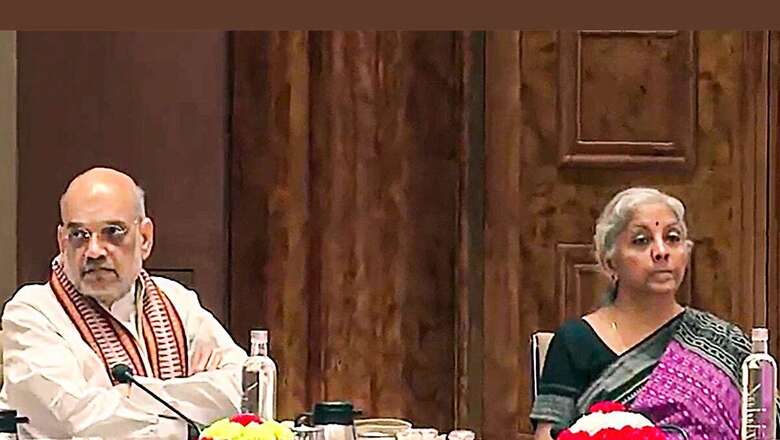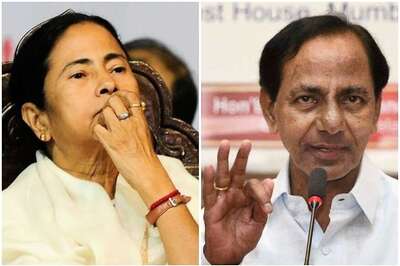
views
India may soon have a central registry of fraudsters to bar an offender from using the country’s financial and banking services. The recommendation has been made by Finance Minister Nirmala Sitharaman to Union Home Minister Amit Shah, News18 has learnt. Apart from other recommendations, the national registry system is under “active consideration”, and the government may implement it soon, a senior official aware of he development said.
Sharing details on the system, the senior official told News18, “Once approved, if a fraudster moves from one bank to another, it would be easier for banks to identify him/her through this system. All law enforcement agencies will share data with the Ministry of Home Affairs (MHA) and further with financial institutions. The Ministry of Home Affairs deals with cyber-related crime and is the coordinating ministry as well.”
The latest communication on the same subject was sent a few weeks ago, indicating the government’s priority. A meeting has already been conducted on the issue to understand the requirements to establish the system.
Currently, if someone commits fraud with the public and receives money through UPI in one bank account, there is an easy way to migrate to another bank. As there is no centralised data available to financial institutions, migration by fraudsters is rampant. The Ministry of Home Affairs’ I4C coordinates between multiple agencies and also tracks cyber complaints on a day-to-day basis.
WHAT DID THE FINANCE MINISTER SAY?
“In a letter, the Finance Minister mentioned that Advancement of technology and promotion of digital financial transactions by the Government of India has led to a huge increase in payments through digital modes. With the increase in digital transactions, instances of fraud in the digital payments space have also increased. These frauds are perpetrated using social engineering techniques combined with sophisticated tools to entice their victims into acting in a certain way to overcome authentication safeguards. As these cases rise, it has become imperative for multiple stakeholders to deploy measures to ensure that their platforms are not abused by fraudsters,” said a senior official quoting the letter.
NEGATIVE REGISTRY
“The minister has suggested that fraudulent merchants/business correspondents, once terminated by one bank, easily move to other banks as fresh entities. There is an immediate need to have a national-level negative registry where banks can upload their negative database, and other banks looking to onboard new entities can consult and make an informed decision with additional due diligence. Fraudsters should not get access to banking/financial services if involved in such activities,” the official added.
OTHER RECOMMENDATIONS
The senior official familiar with the development said Sitharaman has also made other recommendations, including stringent laws to empower law enforcement agencies (LEAs) and establish deterrents.
News18 has learned that the minister emphasised the current legal framework’s susceptibility to manipulation by fraudsters, which limits the effectiveness of LEAs in establishing robust deterrents. There is a need for the enactment of stringent legal provisions that strengthen the capabilities of LEAs by closing loopholes and equipping them with more effective tools to counteract and deter fraudulent activities promptly, the minister believes.
She has also recommended expediting criminal action against fraudsters. “Cyber-related complaints are reported on the I4C portals; however, progress in arresting fraudsters needs to be expedited. Most frauds involve syndicated efforts across multiple states. Therefore, it is necessary to establish a process so that central and state-level LEAs can demonstrate swift action in the field to create a strong deterrent for such unlawful activities. Hence, it is requested to issue necessary directions to the officials concerned to explore the possibility of implementing the above suggestions to combat frauds in digital payments,” the official said, quoting the letter.


















Comments
0 comment